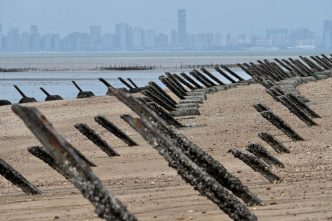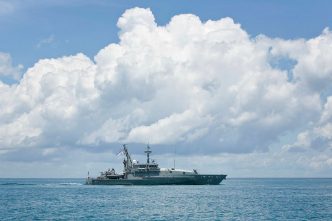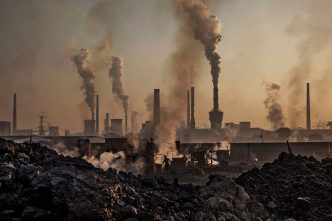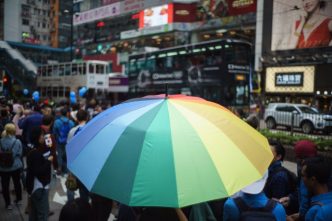With President-elect Joe Biden set to take office on 20 January, there’s little time to formulate a China policy, though it’s clear his administration’s approach to Beijing could have long-term implications for stability and peace …
As artificial intelligence technologies become more powerful and deeply integrated in human systems, countries around the world are struggling to understand the benefits and risks they might pose to national security, prosperity and political stability. …
As Joe Biden’s inauguration approaches, debate about the US’s China policy is intensifying. At issue are the traditional pillars of strategy ambiguity and dual deterrence. Strategic ambiguity means that the US reserves the right to …
As announced today by Foreign Minister Marise Payne, ASPI will host the Sydney Dialogue—which we aim to make the world’s premier summit for emerging, critical and cyber technologies—in the second half of 2021. This annual …
Stable Seas recently released its third annual Maritime Security Index with one very important addition. This year, the geographic scope was expanded to include Australia for the first time. The index tells us about the …
Even after Asia’s economies climb out of the Covid-19 recession, China’s strategy of frenetically building dams and reservoirs on transnational rivers will confront them with a more permanent barrier to long-term economic prosperity: water scarcity. …
If the tradition still holds, arriving on Prime Minister Scott Morrison’s desk this week will be a report setting out the Australian intelligence community’s best guesses (they will call them ‘judgements’) as to big strategic …
The signing of a $204 million memorandum of understanding between a Chinese government-backed fishery company and the Papua New Guinea government to build a ‘comprehensive multi-functional fishery industrial park’ on the Torres Strait island of Daru …
On Twitter, Instagram and Facebook, a network of accounts is targeting the West Papua independence movement with memes and messages designed to shape international and domestic narratives about the separatist movement. The region has been …
Can US President-elect Joe Biden walk and chew gum at the same time? If walking is managing domestic pressures and chewing gum is pursuing a balanced foreign policy, the answer is far from clear. The …
The Australian government’s 2020 cyber security strategy is overwhelmingly focused on increasing the cybersecurity efforts of the defence organisation and law enforcement agencies. The mounting crisis in the United States from the hacking of software …
Recent analysis of Turkey’s foreign policy tends to focus on several complementary narratives. Ankara is seen to be slowly moving away from its NATO partners and towards Russia. Turkish President Recep Tayyip Erdogan appears to …
As China expands its reach around the globe, it is important to understand not only its foreign, economic and security policies but also its massive covert operations. Roger Faligot, an investigative journalist who specialises in …
In its negotiations with the European Union over post-Brexit trade relations, the British government has become entrenched in its demands for full sovereignty. In the future, it wants to determine all of the rules about …
Australia heads towards a dismal achievement: halving what it spends on diplomacy in only three decades. The Joe Biden rule (‘Show me your budget, and I will tell you what you value’) says Australia has …
In the final episode of Policy, Guns and Money for 2020, The Strategist’s Brendan Nicholson, Anastasia Kapetas and Jack Norton share their thoughts on the key events and geopolitical developments of 2020, and the areas …
Christmas sometimes brings presents you don’t expect—this year, for me, an excitingly titled ‘Request for expressions of interest’ that appeared on AusTender is one of them. It’s about Australia’s peak intelligence agency, the Office of …
While the Covid-19 pandemic has shifted attention away from Hong Kong’s fight for democratic freedoms, protests have made the city a focus of the Chinese government’s authority and stance on human rights. Recent events have …
Data has been referred to as the ‘new oil’ or ‘new gold’, but it’s more than that. Most organisations can’t function without it. That applies equally to governments. Australian government data creation, collection, storage and …
When the struggling street vendor Mohamed Bouazizi set himself alight in Sidi Bouzid, Tunisia, on 17 December 2010, he could not possibly have imagined how consequential his desperate protest would be. By sparking a wave …





















